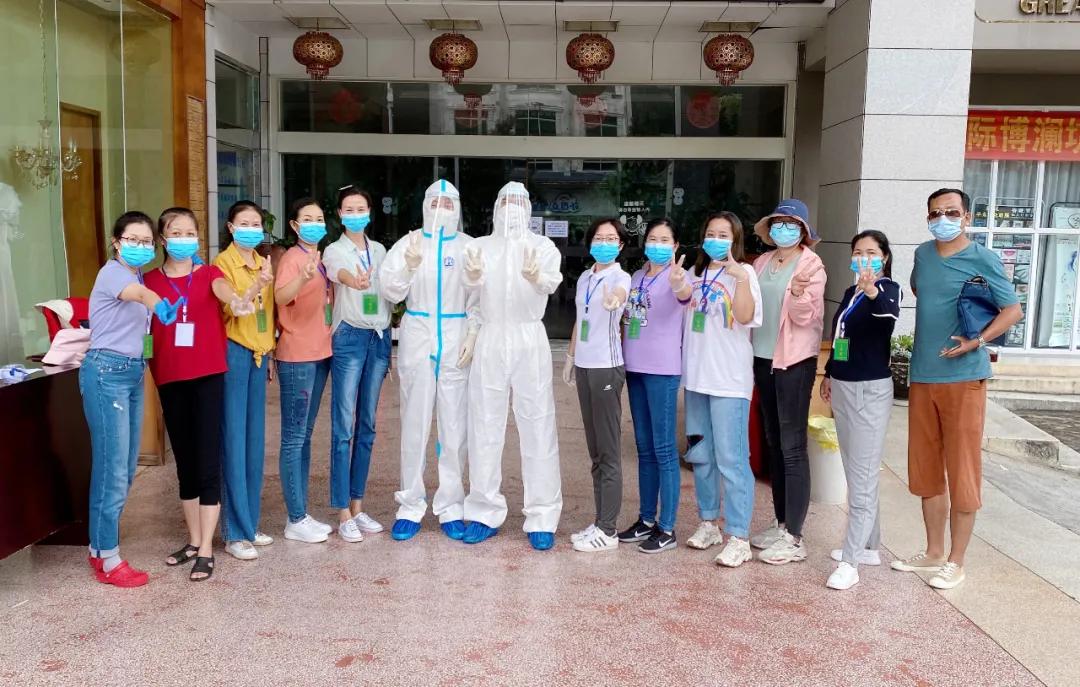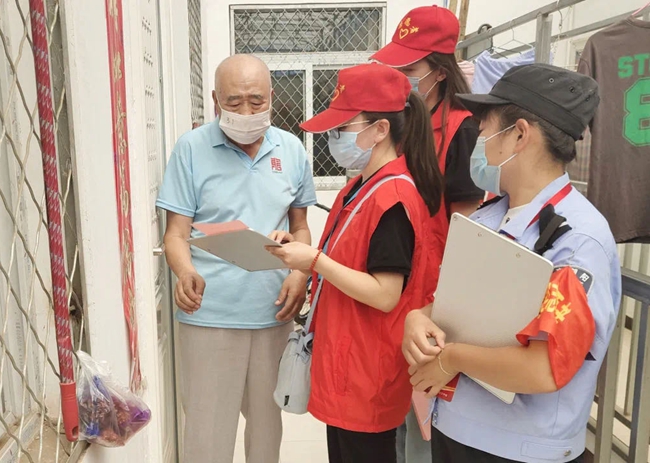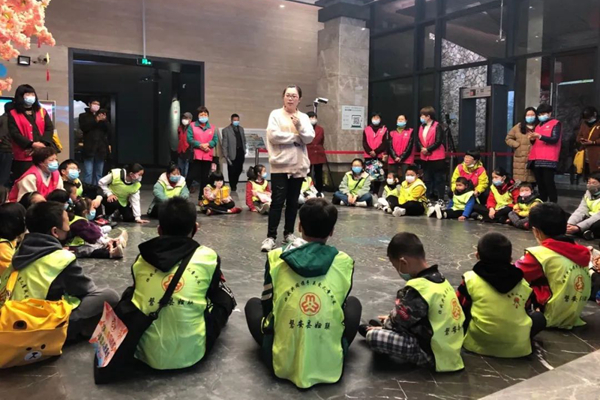
Ordinary People Shine in Wuhan's Fight Against COVID-19
Wuhan, capital city of Central China's Hubei Province and the epicenter of the novel coronavirus (COVID-19), has witnessed many ordinary people from all walks of life contributing their efforts to epidemic prevention and control.
The city has been in lockdown since January 23. People are encouraged to avoid the risk of getting infected in public areas.
Besides the medical staff fighting against the COVID-19 on the frontline, people from all walks of life are not retreating but are sticking to their posts to help the patients and residents in the locked-down city.
The following is a group of ordinary people who are giving full play to their role in combating COVID-19.
"Wuhan is a super-large railway terminal. In the past, many passengers got off and on the train, especially during the Spring Festival travel rush, but now there are no travelers inside or outside the carriage. I am sorry to see that," said Jiang Shuya.
Jiang, a post-1980s bullet train conductor, added that she has been working for 30 consecutive days on the G67 high-speed railway, which starts from the Beijing West Railway Station and stops in Wuhan.
Medical Staff on Frontline
February 19 marked Wu Jingjing's first day working in a mobile cabin hospital in Wuhan.
Wu, a senior nurse from the First Hospital of Lanzhou University, Northwest China's Gansu Province, joined a medical team aiding Wuhan.
In addition to checking the basic information of more than 50 new patients and arranging beds for them, she recorded the vital signs of 143 patients on that day, Wu recalled.
She had to check the information on computer while wearing goggles, but her vision was impaired by her own breath. It took her seven hours to register all the information of patients, which used to be completed in two hours without the protective gear.
Nurse Bai Jing said she felt a little nervous when the first group of patients arrived at their ward area on February 20. But she overcame her anxiety soon.
Having worked as a nurse in the Emergency Department of Gansu Provincial Maternal and Child Health Hospital for 17 years, Bai signed up to join the medical team assisting Hubei Province.
She said her family supported her decision.
"I come from the emergency department and my family is used to my routine duties. The mission is very tough, and we have learned all kinds of professional skills and knowledge in training for it. I believe our own professionalism," she explained.
Zhang Yan, a doctor from the respiratory department of Zhangye People's Hospital, Gansu Province, joined the battle against SARS in 2003. She responded to the call to assist Wuhan and led a six-member team to the epidemic-stricken city on January 28.
In their workplace in Wuhan, there are more than 80 COVID-19 patients, including some severe cases and critically ill patients. Zhang and her colleagues worked out a customized treatment plan for each of them and made adjustment according to the changes in their conditions.
Community Workers
Hu Mingrong, Secretary of the Party committee of Jiangxinyuan Community in Wuhan's Hanyang District, recalled the difficulties she and her colleagues had to deal with during the critical period in the epidemic outbreak.
Hu said the top three difficulties were the shortage of beds, daily supplies and vehicles for transporting patients. Though they all worked overtime at that time, they still found it hard to solve the problems of local residents.
According to her, the shortage has been greatly eased now and their top priority is to serve the residents well. Their routine duties include purchasing daily necessities and medicine for those in need and helping pregnant women, children, patients and other people in need.
"As long as we do a good job in every community, building, unit and household, there will be fewer patients and less pressure on hospitals," Hu said.
In the Shuian Xincheng Community in Wuchang District, there are more than 10,000 residents. It has only 14 community workers and 11 of them have been on duty since the outbreak began in the city.
Peng Jing, Secretary of the Party committee of the community, has been busy working on COVID-19 prevention and control without seeing her family since January 23.
The community workers took a group of protective measures and raised awareness of the virus among the residents. On February 8, they collected all data of temperatures in the communities.
Thanks to the joint efforts of the workers and volunteers, the community has not seen a spike in confirmed cases.
Police Officers
Wang Qun works in an old community in Hanyang District. The majority of its residents are middle and elderly people, who may have trouble with shopping for daily necessities.
Wang launched seven WeChat groups to cater to their various demands, such as the vegetable buyer group, medicine buyer group, and milk buyer group. Since some senior residents did not know how to use WeChat, she invited their children to join the group and place orders instead.
Wang also offered free door-to-door delivery services for those who have difficulties picking up their goods by themselves.
Xu Yang, father of a 10-year-old child, is also a police officer in Hanyang District. He said he had not seen his son since he began to work in a mobile cabin hospital for COVID-19 patients.
In order to reduce risk of being infected, Xu did not live at home but in designated facilities. Phone call is the only way for him to contact his son and wife, who is also a police officer.
The boy has to stay at home alone, since both of his parents have to work on the frontline.
Zhao Chuang, a policeman in Qiaokou District, still rememberes February 1, the first day he transferred patients.
On that day, he worked for eight consecutive hours, transferring 18 patients while wearing thick protective clothing.
Wuhan, a strong city struck by the unexpected virus, is recovering day by day with the joint efforts of many workers and volunteers who sacrificed a lot to save their city and people.
(Source: China Women's News/Translated and edited by Women of China)
- Women Workers and Volunteers Contribute to Citywide Nucleic Acid Test in Qingdao
 Ruili Women's Federation in Yunnan Joins Anti-COVID-19 Epidemic Battle
Ruili Women's Federation in Yunnan Joins Anti-COVID-19 Epidemic Battle Chaoyang Women's Federation in Beijing Makes All-Out Efforts in Fight Against Virus
Chaoyang Women's Federation in Beijing Makes All-Out Efforts in Fight Against Virus- Women's Federations in C China's Hubei Help Women's Enterprises Resume Work
- County Heads, Women's Federations' Presidents Promote Agricultural Products via Livestreaming Shows
 Medic's Stories About Anti-Virus Fight Inspire Left-Behind Children at Women's Federation's Activity
Medic's Stories About Anti-Virus Fight Inspire Left-Behind Children at Women's Federation's Activity

 京公网安备 11010102004314号
京公网安备 11010102004314号